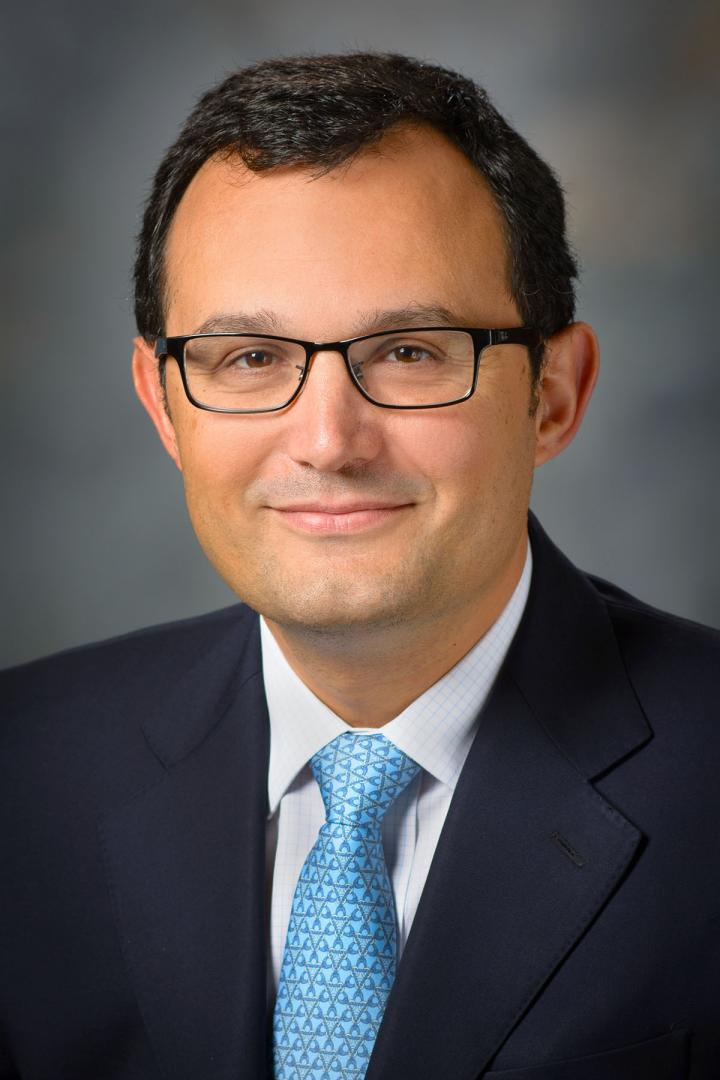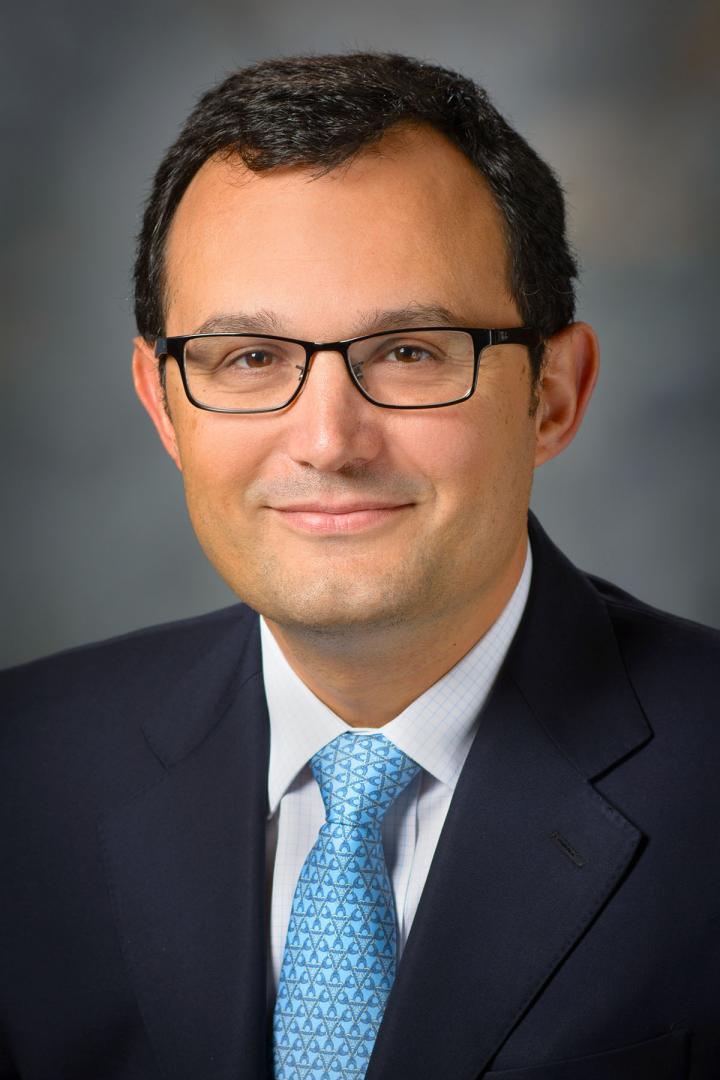
Credit: MD Anderson Cancer Center
Patients who potentially could benefit most from participation in clinical trials due to poor prognoses often are not included based on eligibility criteria, such as existing medical illnesses. A novel study at The University of Texas MD Anderson Cancer Center revealed some patients with acute myeloid leukemia (AML) and myelodysplastic syndrome (MDS), who traditionally could not be considered for clinical trials, responded well and were safely treated in this setting.
The study, led by Guillermo Garcia-Manero, M.D., professor of Leukemia, followed 109 patients with AML and MDS undergoing treatment with azacitidine (AZA) and vorinostat. Research results were presented Dec. 3 at the 58th Annual Meeting of the American Society for Hematology in San Diego.
"Most cancer clinical studies exclude patients with co-morbidities, active or recent malignancies, organ dysfunction or poor performance status," said Garcia-Manero. "How these criteria protect patients is unclear. Although some are based on clinical reasoning, it seems these criteria are in place more to protect the drug or intervention being studied rather than the patient."
The study initially enrolled 30 patients age 17 and older who had not previously been treated for AML or MDS. Patients eligible for the study had either poor performance, poor renal or hepatic function or any other active systemic disorder such as other cancer.
Sixty-day survival was 83 percent with low-grade gastrointestinal side effects reported. The study was expanded to include an additional 79 patients. Sixty-day survival for the second group was 79 percent with a median overall survival of 7.6 months. The average event-free survival was 4.5 months. Again, only low-grade gastrointestinal side effects were observed.
The study was designed with "stopping rules" that included monitoring of side effects and complete response rates. Patients were immediately placed on another therapy if their assigned therapy did not indicate there would be a complete response within a 60-day period. To define the minimum expected survival and response rates that would trigger the stopping rules, researchers relied on prior data of 181 patients previously treated at MD Anderson.
"Participation in clinical trials is fundamental for the development of new therapeutic interventions," said Guillermo Montalban-Bravo, M.D., fellow in Leukemia, a research team member. "Despite this need, only three to five percent of patients with cancer treated in the U.S. currently are enrolled in clinical trials."
The study points to further evaluation of standard exclusion criteria, potentially increasing the pool of patient likely to benefit from therapy, with the aim of future larger clinical trials specifically treating patients with AML and MDS.
###
MD Anderson research team participants included: Elias Jabbour, M.D.; Gautam Borthakur, M.D.; Courtney DiNardo, M.D.; Naveen Pemmaraju, M.D.; Jorge Cortes, M.D.; Srdan Verstovsek, M.D.; Tapan Kadia, M.D.; Naval Daver, M.D.; William Wierda, M.D., Ph.D.; Yesid Alvarado, M.D.; Marina Konopleva, M.D., Ph.D.; Farhad Ravandi, M.D.; Zeev Estrov, M.D.; Nitin Jain, M.D.; Ana Alfonso Pierola, M.D., Ph.D.; Mark Brandt; Troy Sneed; Hui Yang, M.D., Ph.D.; Sherry Pierce; Elihu Estey, M.D.; Zachary Bohannan, and Hagop Kantarjian, M.D., all of Leukemia; Carlos Bueso-Ramos, M.D., Ph.D., Hematopathology; and Xuelin Huang, Ph.D. and Hsiang-Chun Chen, Biostatistics.
The study was funded by the Cancer Prevention and Research Institute of Texas (RP140500), the National Institutes of Health (P30 CA016672), Merck Sharpe and Dohme Corp. (NCT00948064), the Dr. Kenneth B. McCredie Chair in Clinical Leukemia Research endowment, the Edward P. Evans Foundation, the Fundación Ramón Areces, and the MD Anderson MDS/AML Moon Shots Program.
Media Contact
Ron Gilmore
[email protected]
713-745-1898
@mdandersonnews
http://www.mdanderson.org
############
Story Source: Materials provided by Scienmag





